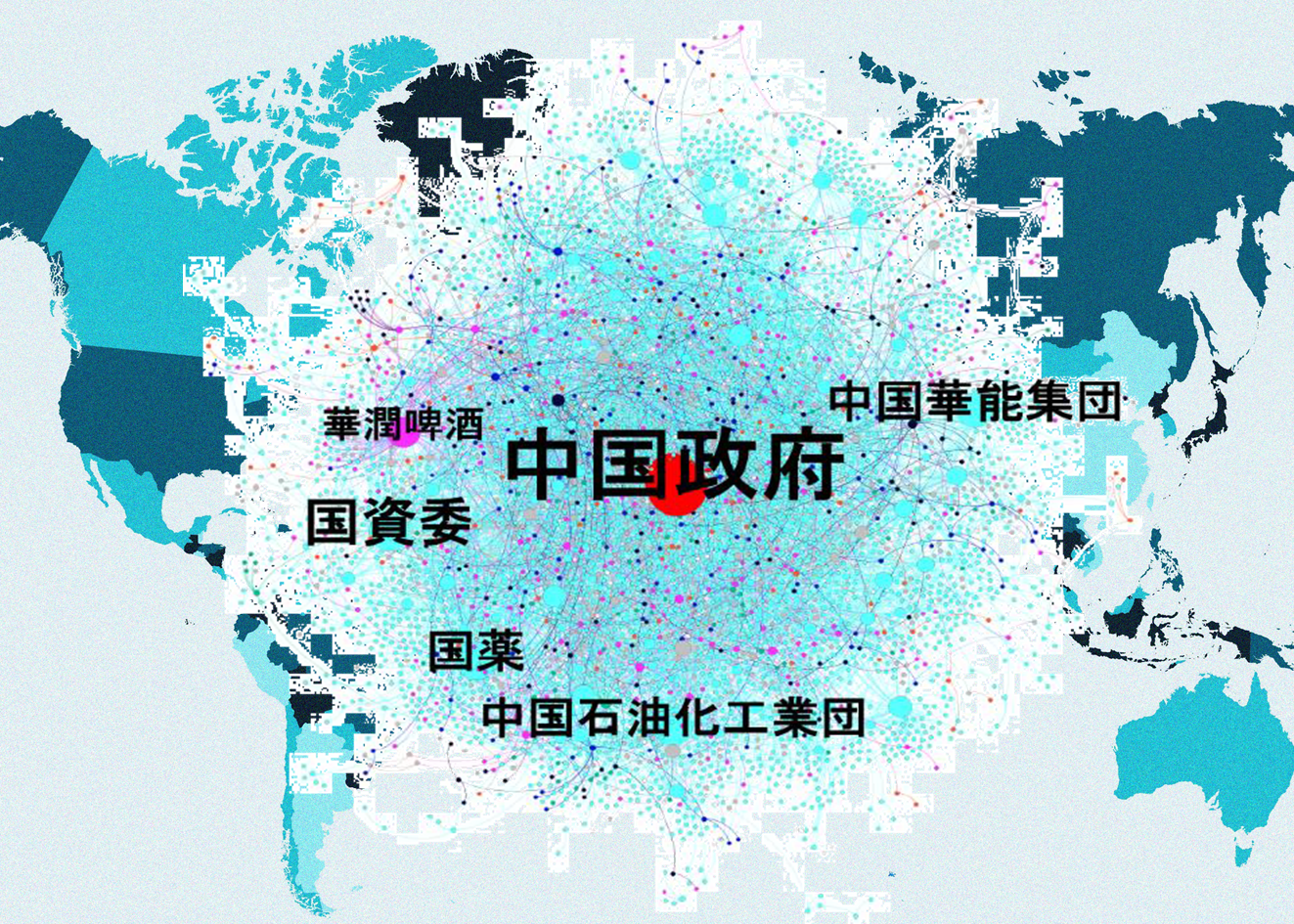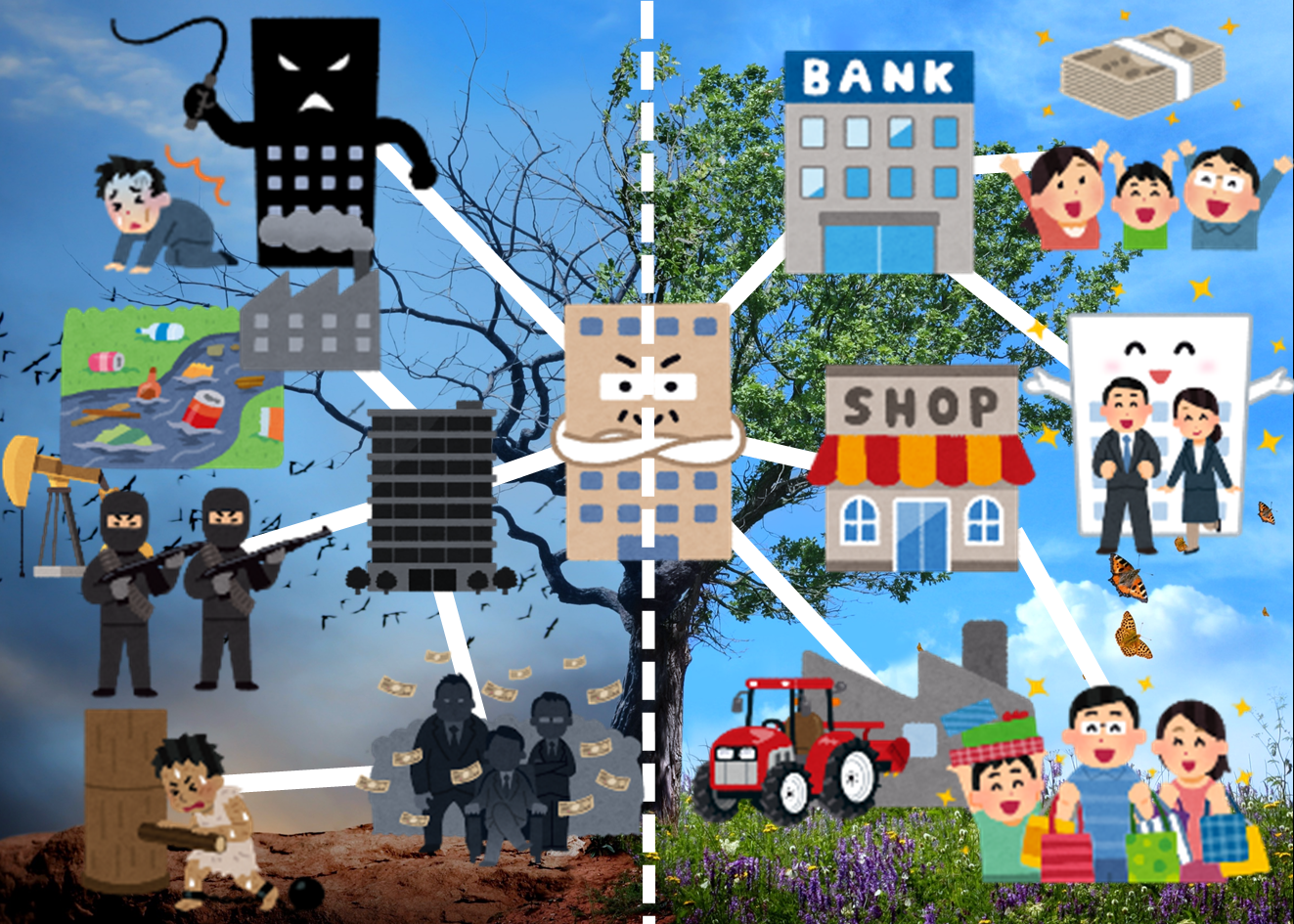Research
The rise of China
Visualization and prediction of power struggles in globalized shareholder networks
A modern society with a global economic network
Until the 21st century, Japan’s economic networks were mostly closed off from the rest of the world, but nowadays they are extending outwards to other countries with different laws and regulations.
We can easily buy foreign stock online, allowing us to take up the ownership of companies in faraway lands without ever leaving home.
We don’t make weapons, but we can become shareholders of foreign arms manufacturers. And by making use of overseas subsidiaries, it is not impossible for companies to reduce their corporate tax liability.

The growing complexity and depth of shareholder influence
The worldwide stock ownership network is in a state of constant flux, making it impossible for humans to grasp which people have influence over which companies.
By extending the Shapley–Shubik power index to these networks, we have quantified who has direct and indirect influence which company’s shareholders’ meetings.
We tracked the evolving influence of over 40 million companies and their 100 million shareholders.

Difficult restrictions on foreign investment
It turns out that the Chinese government presides over more than 100 million shareholders. And every year, its influence is growing.
Investment banks also have a significant influence, but only manage their clients’ money.
Now that investment funds from other countries can be purchased, it is essential to follow the flow of money into investment funds in order to protect the infrastructure and industries in one’s country from foreign investment.

References
[1] T. Mizuno, S. Doi, S. Kurizaki (2019) Studies in Computational Intelligence 882, 611-619.
[2] T. Mizuno (2019) Best Paper Award at the Japanese Society for Artificial Intelligence the 33rd Annual Conference.
[3] M. Odaka, T. Mizuno (2019) Best Paper Award at Information Processing Society of Japan the 81th Annual Meeting.

Research topics
-

Conflict Minerals / Modern Slavery: Research on dark side correction through the global supply chain
-

The rise of China: Visualization and prediction of power struggles in globalized shareholder networks
-

Economic bubbles and financial crises: Detecting outliers generated by self-feedback and crowd behavior
-

Exclusive nationalism versus multicultural symbiosis: A study of cultural fusion and conflict using big data on the movement of people
-

The economics of online society: Preventing excessive competition in a cyber society free from spatial constraints
-

Safe and secure cryptocurrency society: A study of remittance control systems for the cryptocurrency age
-

Manipulation of public opinion: A study of how it can be prevented in SNSs
-

Wealth inequality: A study of corporate productivity and social polarization